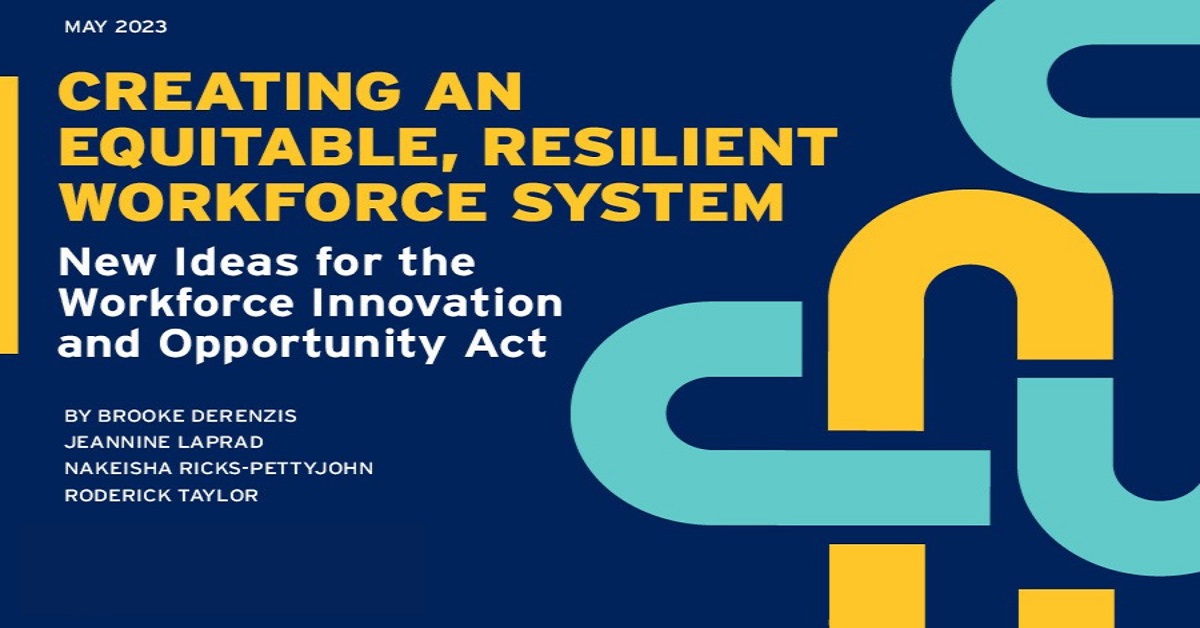
Over the past two decades, funding for the The Workforce Innovation and Opportunity Act (WIOA) has been in decline. WIOA — the primary law that establishes the structure, programs, and funding for our nation’s workforce system — is intended to be our nation’s main vehicle for workforce training. Yet Congress has never appropriated full funding to WIOA, nor has it invested in critical workforce strategies that are key to advancing working people’s careers, supporting small businesses’ talent needs, or promoting racial equity and pathways to quality jobs. To contribute to an inclusive economy, we need to turn WIOA from an underfunded system to one that is adequately resourced to deliver high-quality skills training that supports the assets and aspirations of working people, helps small businesses who hire locally and invest in their workers, and advances racial equity and pathways to quality jobs. This discussion brief & WIOA recommendations lays out a set of ideas that taken together, can improve WIOA in this way.
Specifically, in our WIOA Recommendations, NSC calls for three types of reforms:
■ Invest in programs that provide equitable high-quality skills training, economic supports, and pathways to quality jobs by guaranteeing training for more workers, developing a national network of high-performing industry/sector partnerships and career pathways, supporting digital skills training, and expanding Integrated Education and Training (IET) models.
■ Provide accountability for our workforce system to contribute to an inclusive economy by requiring WIOA state and local plans and boards to incorporate racial equity goals and workers’ voices and by expanding outcome measures, disaggregating data, and supporting evaluation and data systems.
■ Strengthen the delivery of equity-advancing WIOA career services through funding career navigation services, training frontline workers who deliver them, and piloting service delivery partnerships with culturally responsive, equity-focused service providers